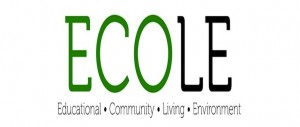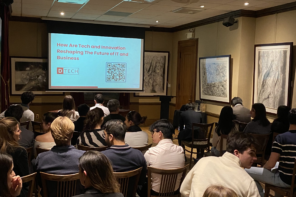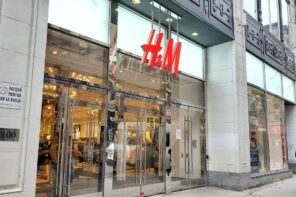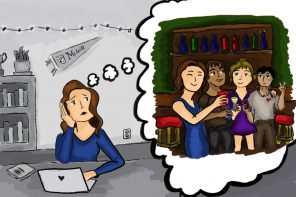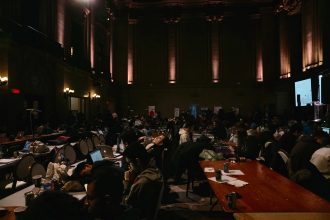The student-run initiative “ECOLE” (Educational COmmunity Living Environment) is working to transform a MORE house into a space for sustainable living to open in September 2014. Head coordinators Courtney Ayukawa (U3, Sustainability, Science, and Society) and former McGill student Lily Schwarzbaum, along with a student working group, have been working closely with Student Housing and Hospitality Services, SSMU, and McGill Office of Sustainability to develop planning and funding for the project. 8-10 students, referred to as “facilitators,” will live in the house as part of an “experiment with sustainable living strategies,” Ayukawa stated.
ECOLE developed from an Alternative University Project (AltU) known as the Greenhaus classroom. In the Fall of 2011, students at McGill and Concordia University developed AltU as a means of coping with what they saw as barriers to University education in Quebec, including increasing tuition costs and the inaccessibility of professors and academic staff. The AltU Manifesto outlines the aims of the original project, which includes: “establishing a place of learning, both inclusive and accountable to the community around it, that strives to support creative exploration, excellence in learning, and community involvement.” Similarly, The ECOLE project is guided by the principles of living, learning, and community building.
ECOLE embraces a broad definition of sustainability, encompassing environmental, social, and financially sustainable practices. Environmentally-sustainable practices such as composting and vegan diets, as well as socially-sustainable practices such as collective living and anti-oppressive practices, are examples of lifestyles that will be encouraged in the ECOLE house.
The project focuses on student-led hands-on learning, keeping with the values of the Alternative University Project. ECOLE facilitators will conduct an independent study based on their experience living in the sustainable housing, and will receive academic credit for their work. Facilitators will also receive a subsidy for their rent in exchange for their participation in the program. According to the project description on the ECOLE website, the residence will fill an apparent lack of interaction among students, and between students and professors by providing “a space for applied research, an informal space for students, staff, and professors to get together to discuss sustainability issues, and a center for applied student research initiatives.”
“ECOLE can fill a lack of casual meeting spaces on campus,” Ayukawa commented. “The physical spaces of ECOLE can be used for film screenings, workshops, and club meetings.”
According to Ayukawa, “a recurring issue on campus is that two people could be working on very similar projects, but they have no awareness of the other project. We’ve already started bringing some of those projects together, and we will hope that actually establishing the ECOLE house will help to facilitate this process even farther.”
In this way, the project will “increase casual networks on campus, and decrease the segregation between departments and faculties. ECOLE will increase the connectivity of these networks, and develop a sustainability community on campus.”
ECOLE housing will be a space for sustainability communities based not only at McGill but in the Montreal community as well. The project hopes to strengthen the relationship between the McGill community and Milton-Parc residents.
Communal-based living practices such as collective purchasing and meal preparation are integral to living sustainably, according to the ECOLE coordinators. For example, communal meal preparation can decrease energy expenditure, and the purchasing of bulk products can decrease waste and shipping costs.
The exact practices and methods of sustainable living to be implemented in the ECOLE house are not yet strictly defined, because facilitators for the project have not been hired. The facilitators will be involved in developing the practices that will be implemented in the house, and the practices may evolve over the course of the year.
“Obtaining funding for ECOLE has been fairly daunting, because of the massive scope of the project,” Ayukawa explained. ECOLE hopes to fund the pilot year of the project, to be launched in September 2014, with funds from SSMU’s Sustainability Projects Fund (SPF). The ECOLE application to the SPF is still being negotiated, but the coordinators hope to have their application approved by February. Once the project is approved for funding, applications for facilitators will be made available.
ECOLE facilitators should demonstrate a passion for sustainability, demonstrated through previous projects in the field. Facilitators should possess a holistic and well-rounded view of sustainability, moving beyond the traditional practices of sustainability such as recycling to incorporate social practices of sustainability.
“We do not want a house of Environment students,” Ayukawa added. “We look to hire a diverse group of students– including academic diversity.” The independent research projects of facilitators will reflect the academic interests of the students, and demonstrate that sustainability has a place in all academic disciplines and lifestyles.
Lastly, facilitators must be “daring enough to take on a project like ECOLE,” Ayukawa warned. Facilitators should be enthusiastic about adopting a new lifestyle, and willing to undertake the challenge of communal living with a group of strangers. The facilitators will also be encouraged to explore alternative means of sustainable living, and advance the reach of the ECOLE project.
The project is presented as an experiment in sustainable living practices, with the hopes that the project will provide a model for future sustainable housing. Ayukawa hopes ECOLE will serve to model for the McGill community that living sustainably does not have to be expensive or difficult, and deconstruct fears or reservations about living sustainably. “ECOLE will demonstrate to both the facilitators and the community at large how important it is to be interdependent with others, and how interdependent each of us is on the world, not only for purposes of environmental sustainability but also for the well-being of individuals,” Ayukawa explained.
The project is reflective of growing movements and concerns on McGill campus. The project reflects the increase in organizations centered around environmentally-conscious practices and a need to facilitate coordination among these organizations, as well as socially-conscious movements such as Rez Project and the emphasis on social inclusiveness.
The ECOLE project is also indicative of changes in pedagogy and teaching styles, a topic which has been widely discussed on the McGill campus of late. The project, which will allow facilitators to receive academic credit for their work, is draws from the practice of inverted classrooms as well as a focus on applied research. The project is an opportunity for students to improve or enhance their McGill experience through hands-on learning and collaboration with other students, opportunities that are not readily available in the majority of McGill classrooms.
Ultimately, the ECOLE coordinators would like the project to evolve into a sustainability research institute at McGill. Granted proper funding, the project has the potential to advance many values important to McGill students and the community at large: environmental and socially- conscious practices, and opportunities for applied research and innovative pedagogy.
Meetings of the ECOLE Student Working Group are open to all. Anyone is welcome to attend and learn about the project. For questions or comments, ECOLE coordinators and staff may be reached at: mcgillecole@gmail.com

